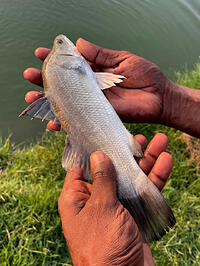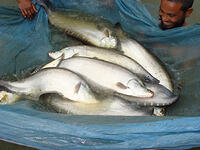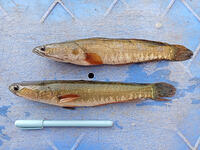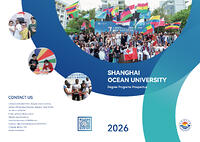Asian seabass has emerged as a promising alternative to shrimp farming in coastal Andhra Pradesh. This article documents the complete production cycle practiced by farmers in Krishna, Eluru and West Godavari districts, from wild egg collection to market-ready fish.
The production process spans 14-16 months across multiple phases: two nursery stages transform eggs into fingerlings, a pre-grow-out phase develops juveniles to 100-200 g, and a final grow-out period produces fish weighing 3-4 kg. Farmers rely heavily on live feed, primarily small shrimp and tilapia, with feed conversion ratios around 6:1.
While the species offers advantages such as fast growth and salinity tolerance, farmers face challenges including fluctuating export prices, rising feed costs and disease outbreaks. The lack of species-specific therapeutics further complicates disease management. Most harvested seabass currently reaches export markets through Kolkata and Chennai, though opportunities exist for domestic value-added products.
The giant featherback (Notopterus chitala) - valued as food, sport fish, and natural pest controller in carp ponds - remains under-utilised in Asian aquaculture despite strong market demand. Limited knowledge of seed production has constrained commercial development, whilst wild populations face pressures from overfishing and habitat loss.
Researchers at ICAR-Central Institute of Freshwater Aquaculture have compiled practical knowledge on captive breeding and larval rearing of this air-breathing species. Their findings address key challenges: establishing brood stock, triggering natural spawning using hard substrata, managing sensitive larvae through the critical first weeks, and preventing disease transmission from live feeds.
The techniques described offer farmers a pathway to reliable seed production, potentially easing supply constraints whilst reducing pressure on wild stocks. The work demonstrates how systematic documentation of breeding protocols can unlock aquaculture potential for neglected native species with conservation value.
In Purba Medinipur, India's leading fisheries district, two farmers are exploring new directions in aquaculture. Sri Buddhadeb Maity has established commercial farming of the prized murrel (Channa striatus), achieving growth rates of 250-300g within two months. His neighbour, Sri Uttam Manna, has taken an unconventional approach: cultivating freshwater aquarium fish in brackishwater ponds near the Bay of Bengal.
Manna's method challenges established practice. He has observed fewer disease problems than those typically encountered in freshwater aquarium fish operations, potentially due to the salt content in his ponds helping to control pathogens. Both farmers have developed profitable enterprises whilst sharing their methods with neighbouring producers, encouraging diversification across the region.
Reports received in 2025, as of the 2nd quarter, only came from few member governments including: Australia, Hong Kong SAR, India, Indonesia, Malaysia, Myanmar and Saudi Arabia. Listed below are the reported aquatic animal diseases covering the first and second quarters of 2025. The original and updated reports can be accessed at the Quarterly Aquatic Animal Disease report page.
Shanghai Ocean University is accepting applications for full-scholarship PhD programmes across marine sciences, including aquaculture, fisheries, food science, marine engineering, and related fields. The 2026 intake welcomes international scholars under 35 years old with a master's degree and strong research potential.
Scholarships cover tuition, accommodation, medical insurance, and provide a monthly stipend. This is an opportunity to study cutting-edge disciplines at a leading institution while joining a vibrant international research community. The application deadline is 1 February 2026. The university also offers postdoctoral and faculty positions for exceptional candidates.
Ready to advance your marine science career? Download the prospectus, visit the application portal or contact the International Student Office for full programme details and eligibility requirements.



